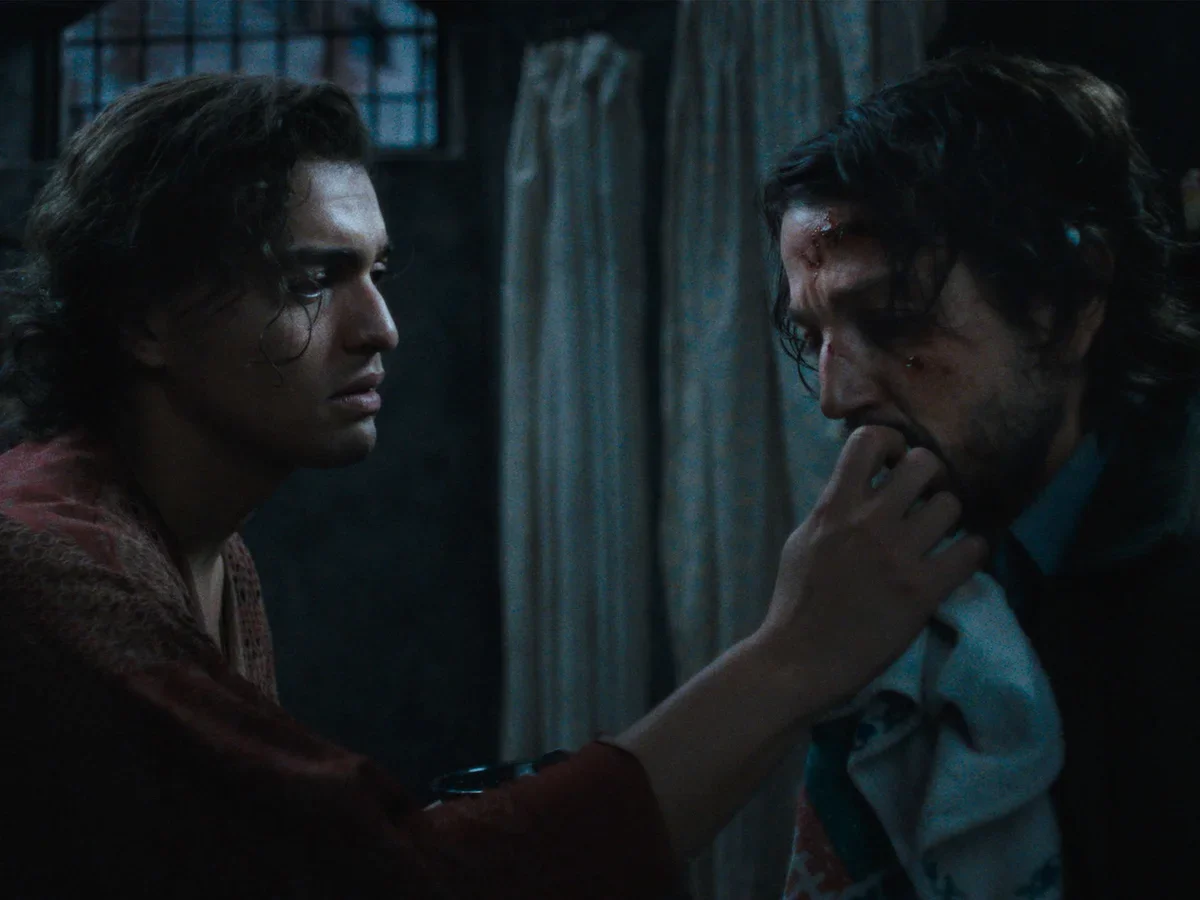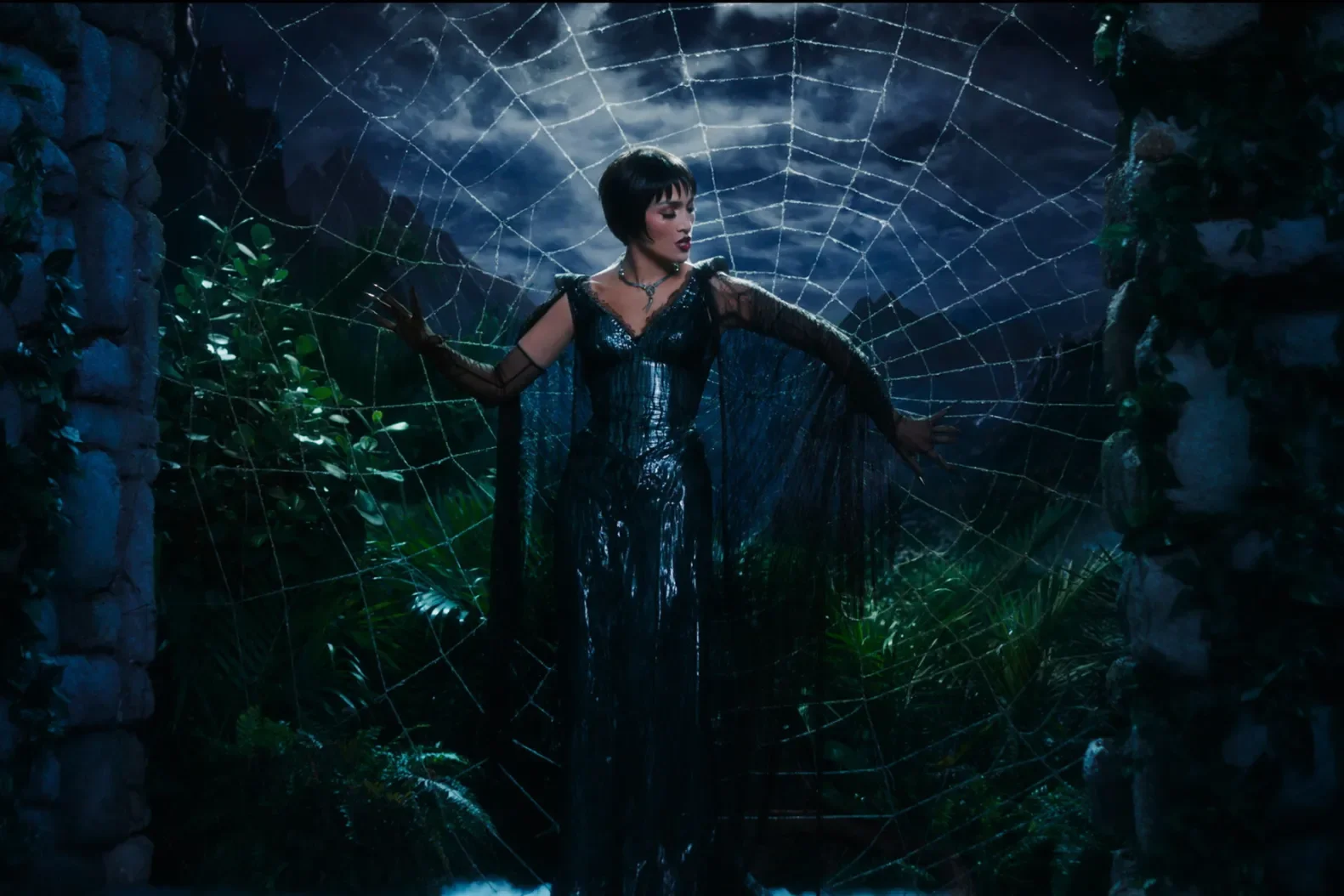Kiss of the Spider Woman: A Meta-Musical That Strangles On Its Own Threads
Now I don’t find myself watching musicals that often. I can count on my hands how many I’ve seen. So take my perspective with a grain of salt–or maybe a whole bag.
The IP’s got history. Kiss of the Spider Woman is a musical drama film directed by Bill Condon(the same Condon who concluded the Twilight Saga). It is a cinematic adaption of the 1992 stage musical, which was itself based on Manuel Puig's 1976 novel, which had inspired a 1985 film. So we’re dealing with at least four layers of adaptation here. Somewhere between the book, the stage, and the screen, something is bound to get tangled up. And… it does.
The film takes place during Argentina’s dictatorship during the 1970s and 80s. Luis Molina (Tonatiuh), a gay window dresser convicted of public indecency, shares a cell with political prisoner Valentin Arregui (Diego Luna). To pass the time, Molina narrates his favorite Hollywood musical, also titled Kiss of the Spider Woman, starring Aurora, a “Technicolor” diva played by Jennifer Lopez. As the film continues, the line between fantasy and reality begins to dissolve, and the escapism of Aurora’s world starts bleeding into the prison.
If that sounds confusing, it’s because it is. The movie loves its own meta-ness a little too much. You definitely can grasp the concepts but the thematic image gets lost somewhere along the way in the liminal space. It’s not just a musical within a movie, it’s a musical within a movie within a memory within a dream. It’s not necessarily Inception: The Musical, but there are layers, and when you start to think critically you realize the core’s a bit underdeveloped.
So I guess that’s my biggest issue: Overambition. Condon clearly loves musicals–he wrote Chicago and directed Dreamgirls–but Kiss of the Spider Woman bites off way more than it can sing. He tries to weave together political repression, queer love, Hollywood escapism, and musical nostalgia, but by the end, all those threads strangle each other. The film’s meta-structure has potential, but it never commits fully to developing any one tone or theme. Without spoiling specifics, the real-life characters and their fantasy counterparts (which thankfully are fairly clear to see) start to overlap in ways that get muddled instead of meaningful. Now I’m not saying that I know how to write a conclusion to a film better than Condon, but there are many things I would have done differently.
As for Jennifer Lopez, I actually enjoyed her role in the film. She plays Aurora with self-awareness, leaning into the heightened drama of old Hollywood. My go-to Oscar Race commentary, The Feinberg Forecast, has Lopez resting at a “Major Threat” for Best Supporting Actress. After another lifeless Netflix AI-slideshow of a film (I’ll let y’all guess which one it is), this is a major rebound. The choreography is fun, tangos and salsas, the occasional fog-machine, and Lopez performs. Every time she appears, the movie (and me) jolts awake.
Tonatiuh, though, gives the movie its heart. His Molina is flamboyant and fragile, while sometimes being quite funny. He performs like he’s always half in the fantasy he’s describing. Diego Luna’s Valentin is his counterpart, tough and repressed. He’s solid, but this isn’t Andor Luna. He is quieter and the movie doesn’t give him much to do beyond brood and look slightly disapproving (and sweaty). The dynamic felt one-sided and the progression of their relationship was severely underdeveloped.
That said, the film has plenty to admire visually. Condon plays with aspect ratio shifts: widescreen for the prison scenes and boxy 1.33:1 for the musical numbers for an old-school MGM feel. As the worlds start to overlap, these contrasts provide you a sense of which reality you're in. Even when the story falters, the visuals pick up the slack.
Tonally, though, the movie can’t quite find its rhythm. The Kiss of the Spider Woman dances from depressing to awkwardly campy to just weird. One minute you’re watching political torture and in the next, J. Lo slinks through a fog machine in a catsuit of some sort? It is whiplash. The movie’s pacing doesn’t help either. There are also some noticeable gaps in the story. Characters appear and vanish, plot points get brushed over, and certain emotional climaxes don’t land. It feels like there’s a longer, better cut of this film somewhere out there. The runtime might be just over two hours, but it’s packed so tightly that the ending feels weirdly rushed and prolonged. I thought the movie was going to end in three different moments, all in different directions–a paradox only this movie could pull off.
Still, there’s something admirable about it. For all its chaos, Kiss of the Spider Woman commits. Hard. Condon isn’t phoning it in, he’s trying to capture something much bigger than this movie can contain. It’s a movie about escaping, and even if the fantasy starts to collapse, I can still feel the ambition.
Basically, I liked it more than I expected to, but still was left wanting more. It’s chaotic but never lazy. It’s strange, uneven, and sometimes uncomfortable. It juggles a lot of ideas and drops a few, but still lands a couple. Maybe that’s fitting for a film about art. It’s never perfect.
I guess musicals aren’t dead, they’re just in spider costumes.
Popular Reviews










